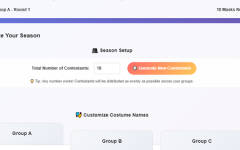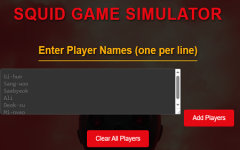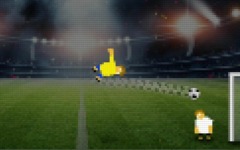Advertisement
Wacky Flip
Advertisement

Wacky Flip is a skill-based game where players control a figure that performs jumps and flips across a series of platforms. Each level presents a different layout, and the goal is to reach the endpoint by managing jump force and mid-air rotation. The challenge increases gradually as players must account for changing distances and platform shapes. The gameplay focuses on timing, spatial judgment, and controlled landings.
Jump Input and Air Rotation
The player begins each move by pressing and holding to charge the jump. Once released, the character launches into the air, and the player can then initiate flips by tapping again. The timing of each flip affects how the character spins and aligns for landing. The character moves in a ragdoll-like way, reacting to gravity and rotation speed. To succeed, players must land cleanly on the next surface without sliding or falling off.
Features and Movement Options
Wacky Flip introduces tools that add complexity to basic jumping. As new levels are reached, players are offered more flexibility in how to complete each jump. The game includes score tracking based on flip count and landing stability.
Core features include:
- Level progression with changing distance and angle setups
- Flip input system tied to character rotation speed
- Landing detection that resets or advances progress
- Scoring feedback on flip count and landing accuracy
- Minimal interface for uninterrupted gameplay
Trial-Based Learning and Adaptation
The game rewards repeated attempts and observation. Players learn how the jump height and flip speed interact with different layouts. Mistakes lead to quick resets, encouraging adjustment on the next try. Although there is no time limit, the game encourages efficiency through its scoring system. The absence of complex mechanics keeps the experience focused on timing and consistency.
Wacky Flip provides a self-contained gameplay loop where every movement affects the outcome. With no dialogue, menus, or long instructions, players interact directly with timing-based challenges. The controls stay the same throughout, but level design forces new strategies. Each session becomes a test of input accuracy and decision-making under simple constraints.






















































































































































